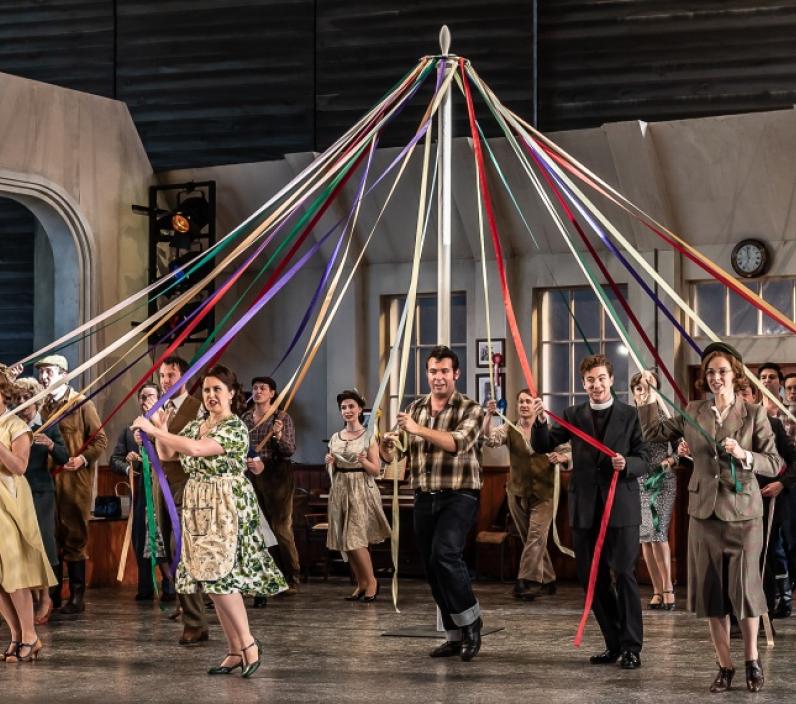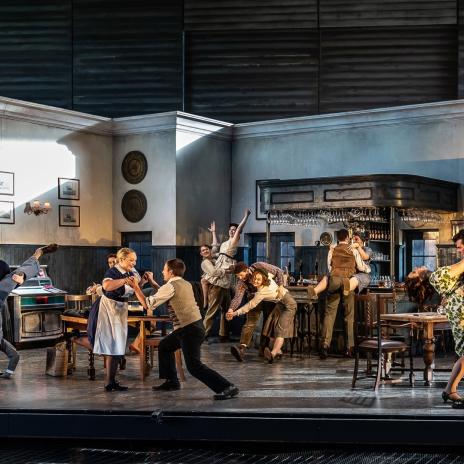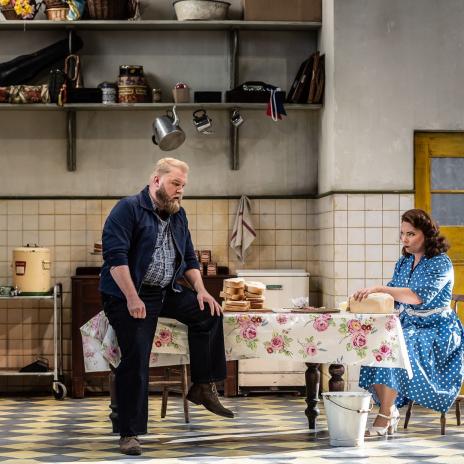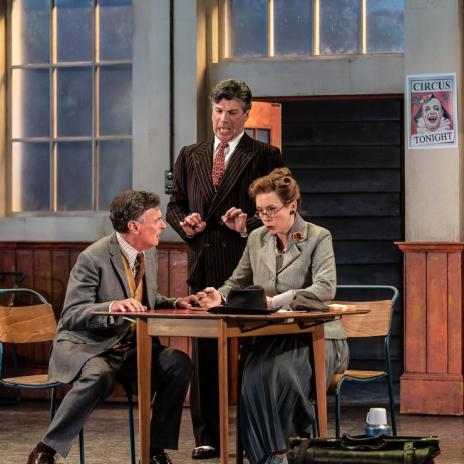

The universality of The Bartered Bride
The Bartered Bride has come to be regarded as an opera that embodies a sort of ultimate Czech-ness. The writer Henrietta Bredin asks conductor Jac van Steen and director Paul Curran if that is a notion that has to be addressed, even circumvented, before presenting the work on stage.
Paul Curran tackles this without hesitation: ‘That’s really like saying that Eugene Onegin is only about being Russian or that Hedda Gabler is exclusively and overwhelmingly Norwegian. These stories are universal. The element that makes people think of The Bartered Bride as being so very specifically Czech is the national dances that Smetana composed for it. They run through the piece but each one has a distinctive character – they’re not sentimental and sweet. There’s a clear reason within the drama why one of them, for example, is called a ‘Furiant’, and we’re going to work on integrating those dances into the dramatic structure of the opera.’
Jac van Steen agrees. ‘The music for the dances is really skilfully written. I spent about 25 years of my career as a music director in a German opera house and Die verkaufte Braut – The Bartered Bride – was treated, for 99 performances out of 100, as just a light-hearted comedy about a girl, a young man and a foolish boy. I never conducted it for that reason because it didn’t seem to fit with the sort of repertoire that interested me. Then about six years ago I started to work in the Czech Republic and I discovered what enormous pride people had in this work. I’ve been studying this score for nearly two years now.’
‘We’re making the whole dance element something that is a focus for a community,’ says Curran. ‘The opera is about a small village society, where people are suspicious of strangers and where the arrival of a travelling circus is something really exciting. It immediately enlivens the mundane, the day-to-day, by bringing a touch of exotica. It may be slightly cheap, tatty exotica, but it’s different, and it’s fun.’
‘And,’ explains van Steen, ‘it comes as a contrast to the romance between Mařenka and Jeník, the soprano and the tenor. Their roles are extremely challenging because, like most Czech music, it all sounds very simple and natural but you need enormous stamina to perform it. The accents that Smetana writes in his score are clearly connected to the text – this is one of the reasons I am so happy that we are performing this in the original language. The words and the sound of the music combined are almost onomatopoeic, it’s as if you can taste the sound of the words and comprehend them.’
Curran points out that the characters are very well drawn: ‘Mařenka is neither a ditzy romantic nor a scheming bitch – she’s a strong, capable young woman who is deeply offended and hurt that she is being sold off by a marriage broker in this outrageous fashion. And her mother is interesting as well: in a way, she’s the key to the whole thing, making it essentially a feminist piece. You expect her to say that her daughter will have to do what she’s told but in fact she says, “This is what we did in my day but you don’t have to do that. It’s your decision.”’
‘Smetana juggles with the psychology of the characters,’ adds van Steen. ‘He gives them his version of a Wagnerian leitmotif. The marriage broker, Kecal, who is part villain, part comic, often has a bassoon as accompaniment, bringing exactly that combination of colours. And if Mařenka sings the word ‘love’ or ‘faith’, she is often accompanied by two clarinets. But then, the moment that she refuses to follow her father’s decisions, Smetana adds the harsher sound of the oboes. The full orchestra is used for the overture and the dances but otherwise Smetana uses particular combinations of instruments as and when he needs them. My challenge will be to get the brilliant players in the Philharmonia to be both completely free, in the Czech Romantic style, and immensely precise in their way of performing. “Flexibility between the bar lines” will be my motto.’
‘And’, says Curran, ‘my challenge – among others – is to get these fabulous singers acting, singing and dancing all at once!’
Henrietta Bredin is deputy editor of Opera magazine and writes widely on opera and theatre.




